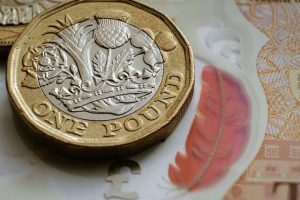Brexit Britain victory as UK economy soars back to near pre-pandemic levels

'Creeping inflation' biggest threat to UK economy says expert
We use your sign-up to provide content in ways you’ve consented to and to improve our understanding of you. This may include adverts from us and 3rd parties based on our understanding. You can unsubscribe at any time. More info
The better than expected performance in September however came following a slight dip in July and more modest gains in August. Paul Craig, portfolio manager at Quilter Investors commented: “20 months on from the onset of the pandemic, the UK economy has very nearly made up all the lost ground, with GDP just 0.6% below February 2020 levels after a consensus beating 0.6% growth in September.” Overall growth stuttered slightly rising by 1.3 percent for the most recent quarter compared with 5.5 percent in the previous quarter, although it leaves growth as a whole closer to pre-pandemic levels. Grant Fitzner, chief economist at the Office for National Statistics, said: “Growth picked up in September and the UK economy is now only slightly below pre-pandemic levels.”
“This latest increase was led by the health sector, boosted by more visits to GP surgeries in England.
“Lawyers also had a busy month as house buyers rushed to complete purchases before the end of the stamp duty holiday.
“However, these were partially offset by falls in both the manufacture and sale of cars.
“Notably, business investment remained well down on pre-pandemic levels in the three months to September.”


Another sector to lead the charge has been hospitality with accommodation and food services seeing a 30 percent jump in business.
For sectors struggling the main headwinds have come in the form of supply chain disruption and labour shortages.
There were also signs of falling consumer spending resulting in weaker retail figures.
Chancellor Rishi Sunak struck a cautious note saying: “‘As the world reopens we know that there are still challenges to overcome.”

Alpesh Paleja, Lead Economist at the Confederation of British Industry said: “It’s encouraging that the economy maintained some momentum in September. But there’s no denying that this rounded off a tough quarter for businesses, with supply constraints biting hard.
“A combination of rising Covid cases and shortages of raw materials, components and labour came together to present significant headwinds to growth.”
Against this backdrop some such as think tank the Resolution Foundation have suggested the figures support the Bank of England’s decision last week to leave interest rates unchanged.
Suren Thiru, Head of Economics at the British Chambers of Commerce agreed cautioning the Bank against raising interest rates to avoid destabilising recovery.
DON’T MISS:
Crash fears as investors STILL haven’t received Evergrande bonds [ANALYSIS]
Pound bounces against Euro and Dollar [LATEST]
Primark set for expansion [SPOTLIGHT]

Mr Suren added: “The third quarter slowdown is likely to be the start of a sustained period of sluggish growth as staff shortages, supply chain disruption and surging inflation increasingly stifles economic output.
“Consequently, on a quarterly basis, the UK economy is only likely to return to its pre-pandemic level next year, behind many of our international competitors.”
Chair of the Federation of Small Businesses Mike Cherry said the figures showed the “mammoth task” that lay ahead in recovery.
Taking aim at recent Government policy he added:” Unfortunately, it’s against this backdrop that the government has decided to hike national insurance contributions and dividend taxation.”
“We are now hurtling towards a flashpoint in April when the jobs tax and national living wage will rise at the same moment whilst business rates also kick in for many.”
Source: Read Full Article
